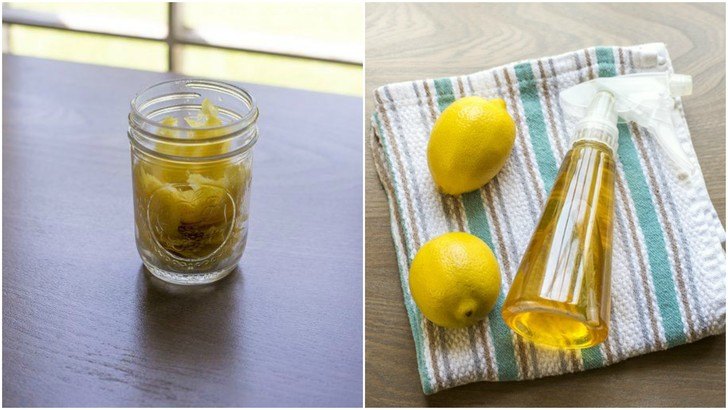
You’ve made the switch to eating healthier, whole foods, and you’re exercising regularly too, but have you considered that you may be subjecting your health, and possibly that of our family’s, to the dangers of chemical cleaning products?
The majority of store-bought household cleaners are loaded with harmful chemicals – and that doesn’t include just the obvious ones, like drain and oven cleaners, but even surface cleaners and air fresheners.
The average household contains some 62 toxic chemicals, environmental experts report.
We’re exposed to them routinely — from the phthalates in synthetic fragrances to the noxious fumes in oven cleaners. Ingredients in common household products have been linked to asthma, cancer, reproductive disorders, hormone disruption and neurotoxicity.
Indoor Air Pollution
If you use chemical household cleaners, the air in your home may be two to five times more polluted than the air outside.
That’s because the chemicals and other compounds in the products are the main contributors to indoor air pollution, leading to health issues like dizziness, headaches, fatigue, asthma and allergies.
Long Term Health Problems Linked to Chronic Exposure
Not only are there possible short-term consequences from breathing in or being exposed to toxic household cleaners, like skin burns from accidental contact and headaches from fumes, but chronic exposure poses some serious long-term risks. Manufacturers have argued that in small amounts, their toxic ingredients aren’t likely to cause an issue, but when we’re exposed to them on a regular basis, it adds to the body’s “toxic burden,” which refers to a number of chemicals stored in tissues at any given time.
That can eventually cause enough harm that it triggers a disease to develop.
Harm to the Environment
Chemicals in household cleaning products also harm the environment in multiple ways, whether they’re released into the air when used or poured into the drain, seeping into the water system.
This hurts both our indoor and outdoor air, contributing to air as well as water pollution, and has toxic and reproductive effects on aquatic species in addition to adversely affecting the water we drink, contributing to climate change and damaging precious ecosystems.
This negative impact can occur at many points throughout a product’s lifecycle, from extracting the raw materials and manufacturing to packaging, distribution, product usage, and disposal.
Dangers to the Unborn and Children
Experts are not only concerned that many chemicals in household cleaning products may be carcinogenic or wreak havoc with our hormones, but the impact of them may be most severe in the developing brain.
That’s because the brain is what develops the most complete, and the most rapidly during those nine prenatal months, a time during which neural connections and pathways are being developed.
Once they come into this world, children are subject to the dangers of chemical poisons in the home – every day, 300 children are reported to be treated, and to die, from household cleaning poisons.
Even if we follow the advice to keep these cleaners out of their reach, we’re spraying, pouring and wiping them all around our homes, putting children at serious risk. It just doesn’t make sense when there are plenty of natural cleaners, without chemicals, that are just as effective.
How To Make An Easy Lemon Disinfectant Cleaner
Lemon juice is one of the best natural cleaners due to its low pH and antibacterial properties.
Plus, it smells great!
There’s nothing that smells as refreshing as a lemon. Another plus is that lemons aren’t likely to cause damage to materials around what you are cleaning such as fabric or wood.
Combine lemon’s amazing cleaning power with a simple alcohol and you have an inexpensive, powerful cleaner you can use virtually anywhere.
Below we have provided both video instructions and written instructions with step by step photos depending on how you prefer to absorb information.
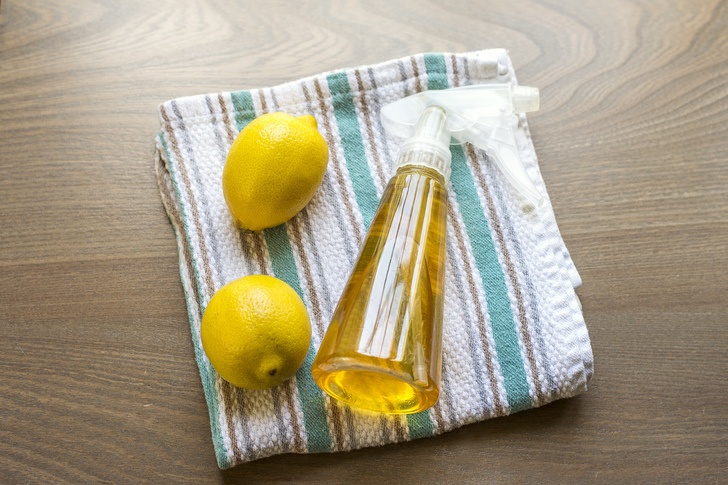
Ingredients
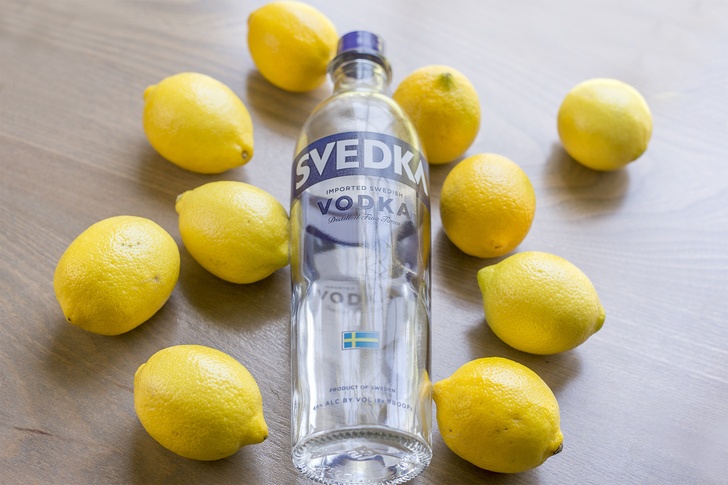
- 5-6 fresh lemons
- vodka
- glass jar with lid
- spray bottle
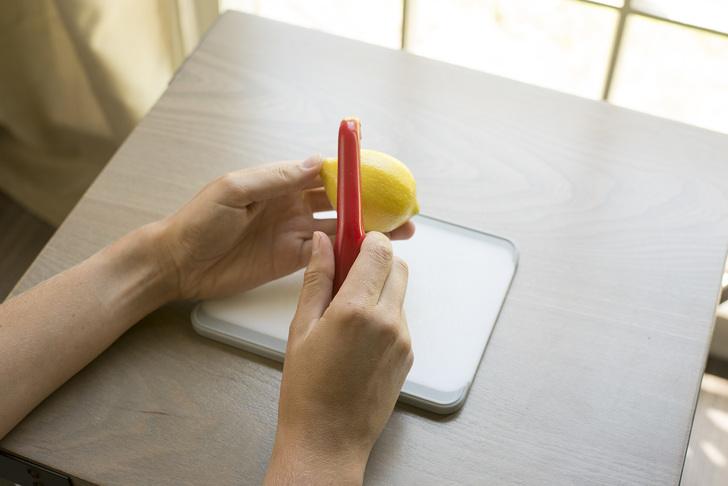
Peel the rinds off of the lemons. The lemon oil is the strongest in the peel. Be sure to avoid the white pith. Don’t toss the lemons, save them to use in cooking or other cleaning tasks.
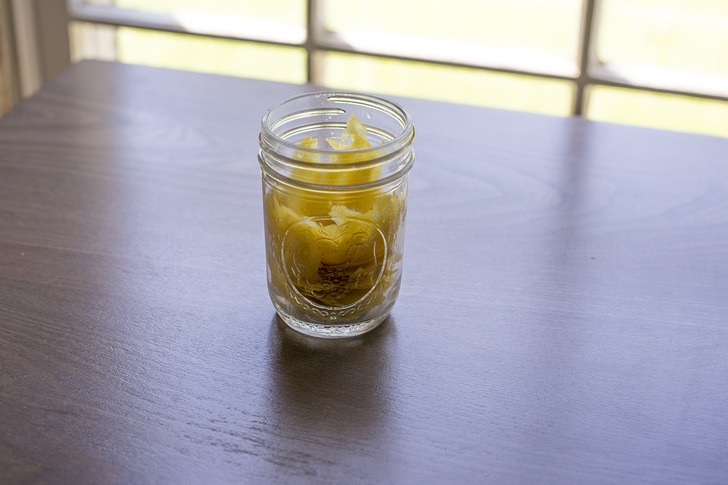
Add the peels to a glass jar.
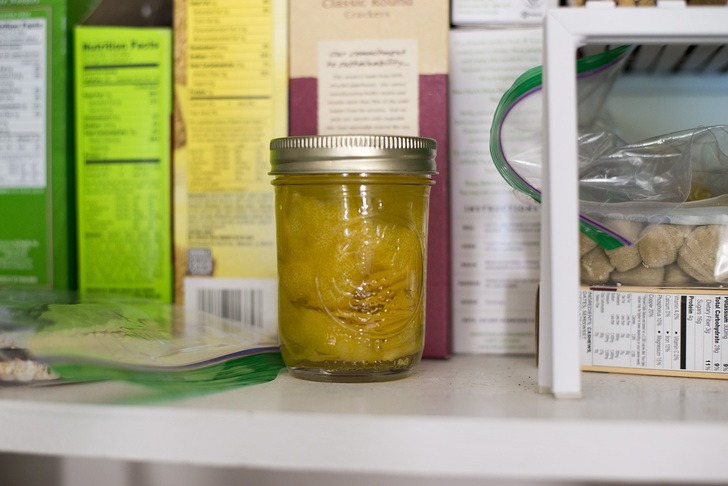
Fill the jar with vodka. Cover and let the jar sit in a cool, dry place for four weeks for the best results. Strain and add the liquid to a spray bottle and clean away!
Other Ways to Use Lemons for Cleaning
- Use a half lemon and salt to clean discolored brass, copper or chrome.
- Use diluted lemon juice to kill bacteria on cutting boards.
- Lemon juice is a natural stain lifter. Rub the juice full strength onto the stain and let sit until the stain fades.
- Use an old toothbrush and lemon juice to clean dingy grout.
- Get stains and odors out of plastic food storage containers. Soak them in diluted lemon juice. Add baking soda and scrub, rinse and dry.
- Get rid of odor from your refrigerator with a half lemon on a saucer or in a cup.
- Remove grease stains from clothing by rubbing lemon juice into the spot and let sit overnight and then wash as normal.
- Use lemon juice to remove mineral build-up on kettles and coffee pots. Boil lemon slices in the pots and allow the mixture to sit for an hour or two, and then rinse and dry.
